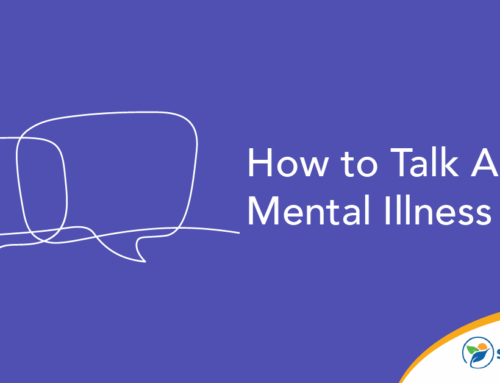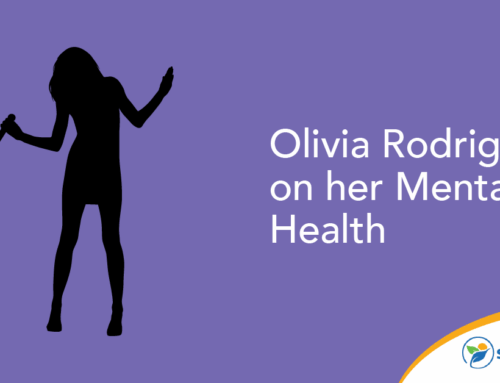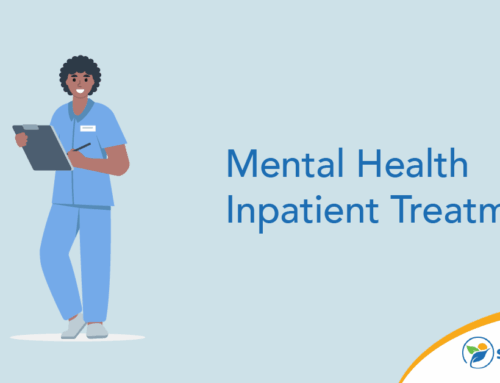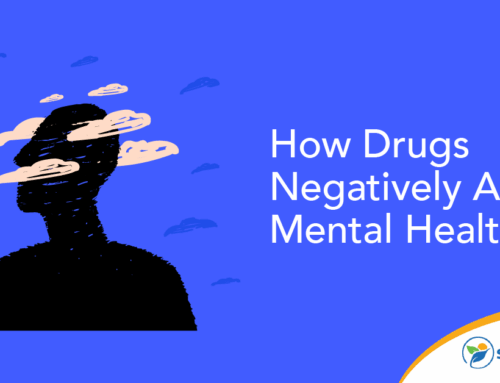Depression is a complex, severe condition that impacts approximately 21 million American adults. And although we’ve made strides in mental health awareness and understanding in the last few decades, there are still a lot of misconceptions out there. You might think you have everything about depression nailed, but do you really? Here’s a list of the seven most common myths about depression you might still mistakenly believe today. (Don’t worry, you’re not the only one!)
Myth Debunking: 7 Myths About Depression
Here are seven misconceptions about depression still believed by some today (and some facts about depression to set the record straight).
1. Smiling More Can Cure Your Depression
You’ve probably heard you’ll be happier if you force a smile. This little factoid is often shared by keynote speakers at conferences, in introductory psychology classes and on motivational posters. But a 2019 study dug into this claim and found it’s only marginally true. For example, if 100 people forced a smile, only seven would feel happier, and the increase would be minimal at best.
Besides the fact this information has been proven to be flawed, this also isn’t how depression works. Depression isn’t someone feeling temporarily down or being in an inexplicably bad mood. Instead, depression is a serious condition that can’t be fixed with something trivial like smiling more.
Telling someone with depression they should smile more is like telling someone with a smoking habit they should just stop thinking about cigarettes. It’s unhelpful and impractical advice.
2. Antidepressants Will Change Your Personality
Depression is a highly treatable condition if the individual gets the help they need. For most people, the most effective solution is a combination of medication and therapy. Sadly, many people continue to struggle with their condition because they believe one of the most common depression myths out there: Antidepressants will change your personality.
This is the furthest thing from the truth. Antidepressants should make you feel better and like your old self, without the depressive symptoms bringing you down.
This myth likely comes from the fact that finding the right medication type, brand and dosage for each patient can take some time. As you and your doctor work through testing medications, some may not feel right. But you should never continue to take a prescription if it has this effect. Instead, communicate with your therapist or doctor so you can find a medication that makes you feel better, not worse.
3. Once You Start Antidepressants, You Must Take Them Forever
Another myth attached to antidepressants is the idea that once you explore this solution, you’re going to be taking them forever. Once again, this isn’t the case. The ultimate goal of any therapist or doctor who puts you on antidepressants is for you to come off them eventually. This might take months or years, but after a long period of stability when you’re displaying little to no depressive symptoms, your team may advise you to wean off the medication slowly.
Antidepressants aren’t forever. But they’re a valuable resource to help you through a challenging time. You can view antidepressants like a life jacket when you’re in rough waters. When the waters calm, you’ll feel comfortable taking the life jacket off.
4. Depression Isn’t a Real Illness; It’s Just an Excuse to Be Lazy
A lot of older generations grew up with the belief that depression is just someone being weak or lazy. The idea is that strong-willed people can break themselves out of a depressive state. With the WHO estimating that 5% of the world’s adult population suffers from depression, it’s hard to believe millions of people are just exaggerating their symptoms for sympathy or attention.
Depression is a real mental health condition. It can be caused by many reasons, including genes, brain chemistry, illness, life events, childhood upbringing and more. Sometimes, a person’s genetics or faulty brain chemistry makes them vulnerable to the condition, so their body is working against them!
Anyone spreading the myth that depression isn’t an actual mental health concern is only doing a great disservice to those struggling with this condition. Everyone must work hard to end the stigma surrounding mental health. Dismissing a person’s valid concerns doesn’t help individuals feel supported in seeking help.
5. Children Can’t Be Depressed
Depression can impact anyone regardless of gender, ethnicity, sexual orientation, cultural background, economic status or age. Children can get depression, and if it’s left unaddressed, it can come with serious risks. For young people aged 10-24, suicide is one of the leading causes of death. Never ignore or dismiss your child’s feelings if they’re trying to communicate symptoms of depression with you.
6. Depression Always Stems From a Traumatic Event
Someone may dismiss their feelings as not being serious because they feel they haven’t been through a traumatic event. But lots of things can trigger the onset of depression, including substance abuse, medications, stress, genes, illness, grief and loss and hormones. You don’t have to experience trauma to have depression.
7. Depression and Grief Are the Same Thing
Grieving the loss of a loved one is complex, and the associated symptoms overlap with what depression feels like in many ways. But grief and depression aren’t the same. Grief is a complicated emotion that can be filled with moments of positive thinking. With time, grief slowly subsides and a person can resume their daily routine. In comparison, depressive episodes can last weeks, months or years if they’re left untreated.
Don’t Tolerate Depression Myths; Knowledge Is Power
It’s completely understandable if some of these depression myths have tricked you. Many are so widespread and believed that you’ve probably had them reaffirmed by others multiple times. The good news is you now know what is and isn’t true about depression. You can do your part to help end mental health stigma by correcting people when you hear them share myths about depression. Politely correct them, letting them know the accurate information. The more knowledge is shared on the topic, the better it is for everyone.
Get Depression Support at Sunlight Recovery
Depression won’t just go away one day. You need to have the courage to ask for help. Remember, you deserve happiness, and treatment can help you feel like your old self again. Contact Sunlight Recovery today to learn more about our programs and how we can get you back on the road to happy living.







